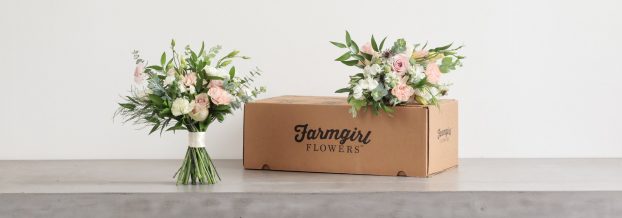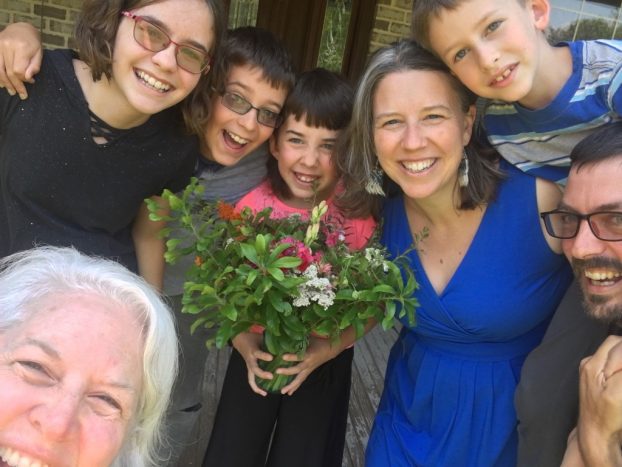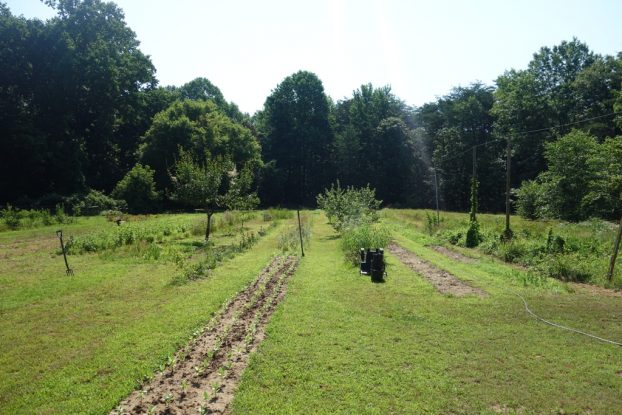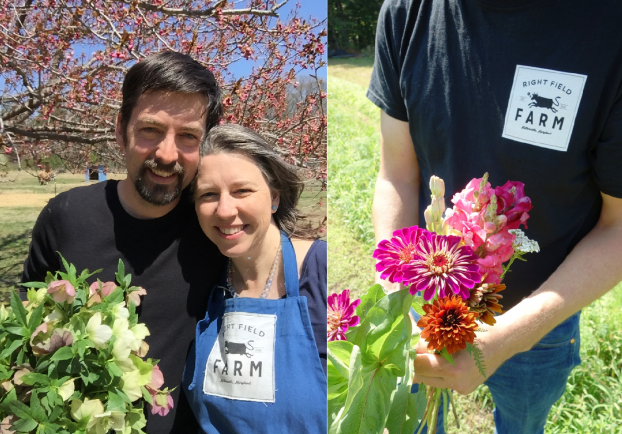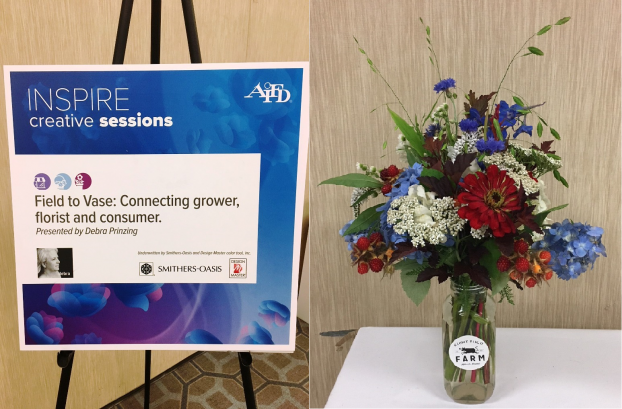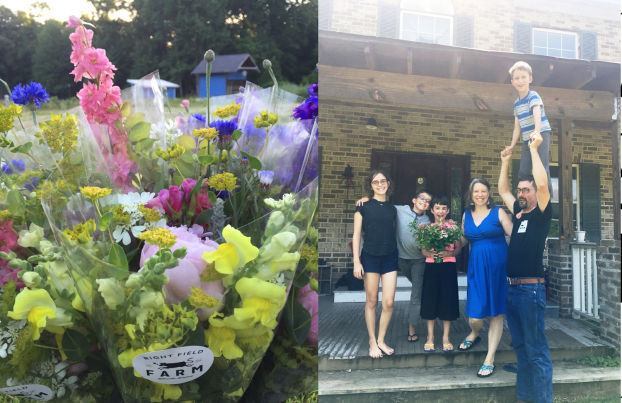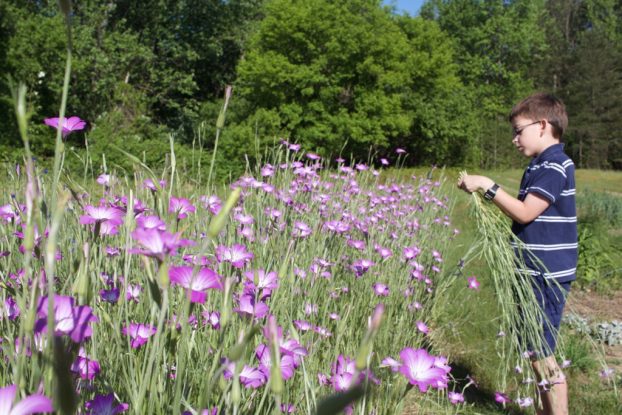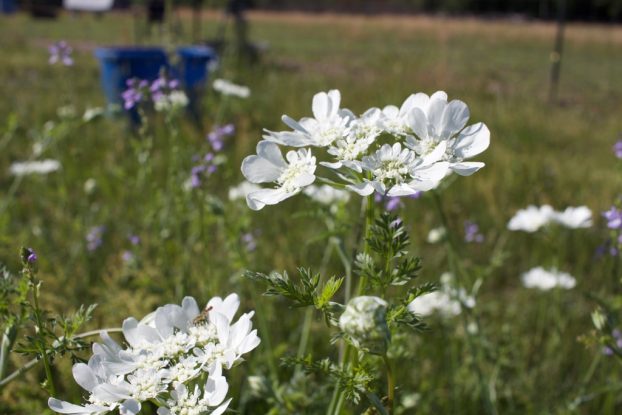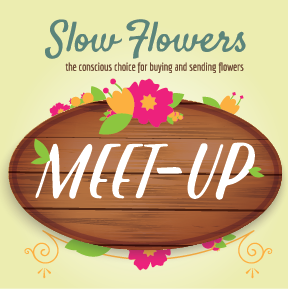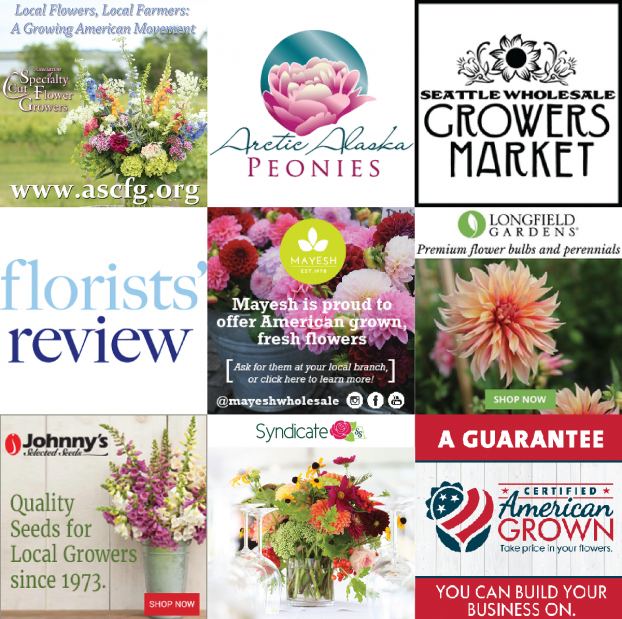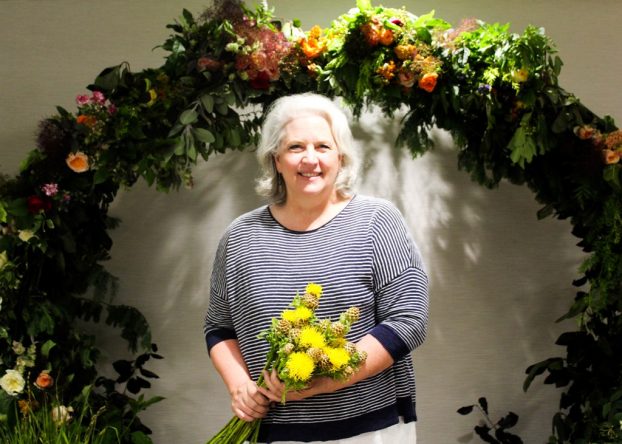Podcast: Play in new window | Download
Subscribe: Apple Podcasts | Podcast Index | RSS | More
Thank you so much for joining us today! As you may know, October is our month to celebrate our Slow Flowers members and one of our goals is to showcase and thank as many of our Premium Level members as possible, our top supporters.
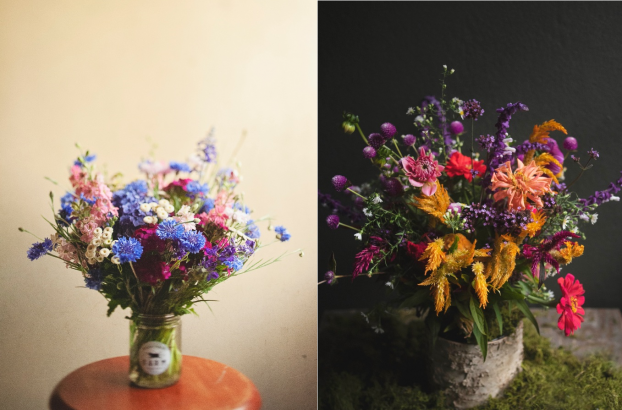
Today, we’re visiting David Brunton of Right Field Farm in Millersville, Maryland, outside of Annapolis. David is a past guest of this podcast – you can go back to listen to my original interview with him in July 2018 at debraprinzing.com for Episode 529.
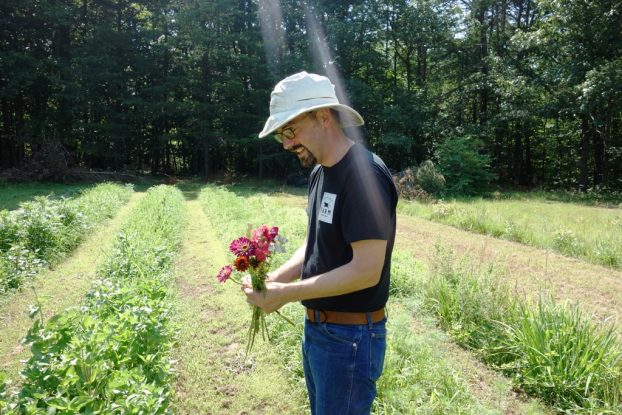
One key takeaway from my past conversations with David and his wife and partner Lina Brunton, is that they know what and how their farm should work for their family’s lifestyle. On their family farm they grow, design and deliver a mix of perennial and annual flowers in Anne Arundel County, Maryland with an eye toward all the natural beauty the region has to offer. From April to October, Right Field Farm delivers over two hundred varieties of flowers in abundant, garden-inspired hand-tied arrangements. Newsletter customers receive weekly updates during the season with all the latest information, including any specials or pop-up flower sales.
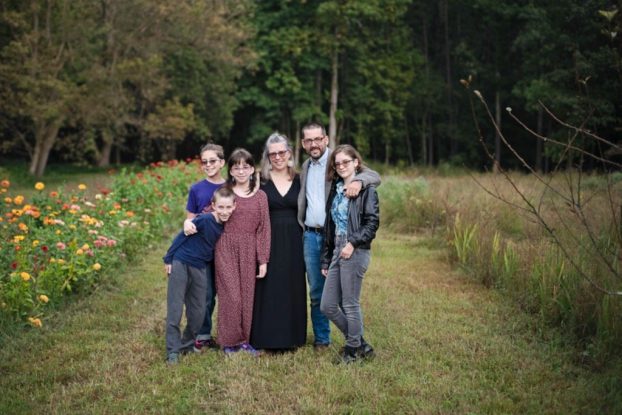
They are committed to nurturing the health of their farmland, and tending the thriving ecology that it supports there. In addition to flowers, Right Field Farm is home to laying hens, honeybees, sheep (for wool), dogs (for companionship), and their four children. They don’t use any pesticides – not on their flowers or in their soil – which means Right Field Farm is also home to wild bees and birds and frogs and soil fungi and all manner of woodland critters.
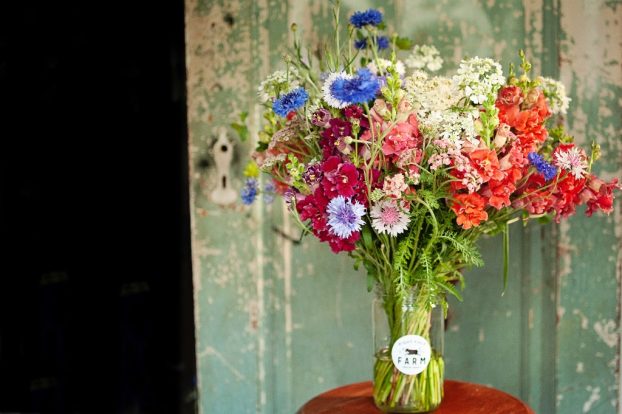
When I asked David if he would join me on our new video-vodcast channel, he said the timing was perfect. Just a few days ago on Saturday, October 16th, David planned to design for the season’s final week of bouquet deliveries. He joined me on screen, from his beautiful covered porch where he always designs, and produced some epic hand-tied bouquets during our conversation.
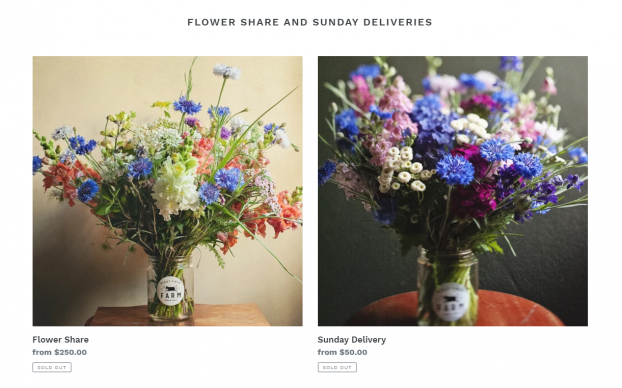
You will love watching him and enjoy all the topics we touched — from deciding what to grow and how to make sure you have plenty to harvest each week of a 26-week-long season for subscribers and a la carte delivery customers — to the story of one family’s flower-based life and business.
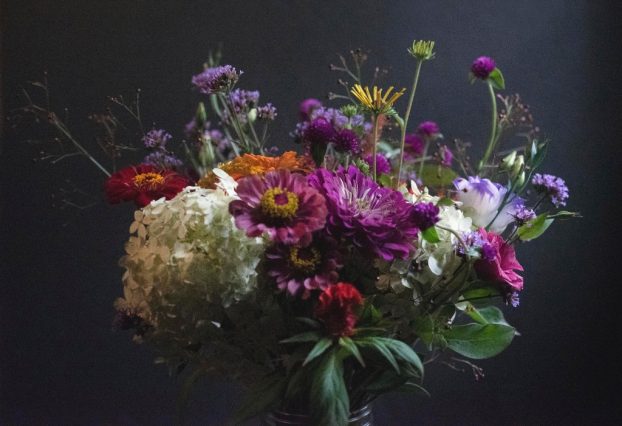
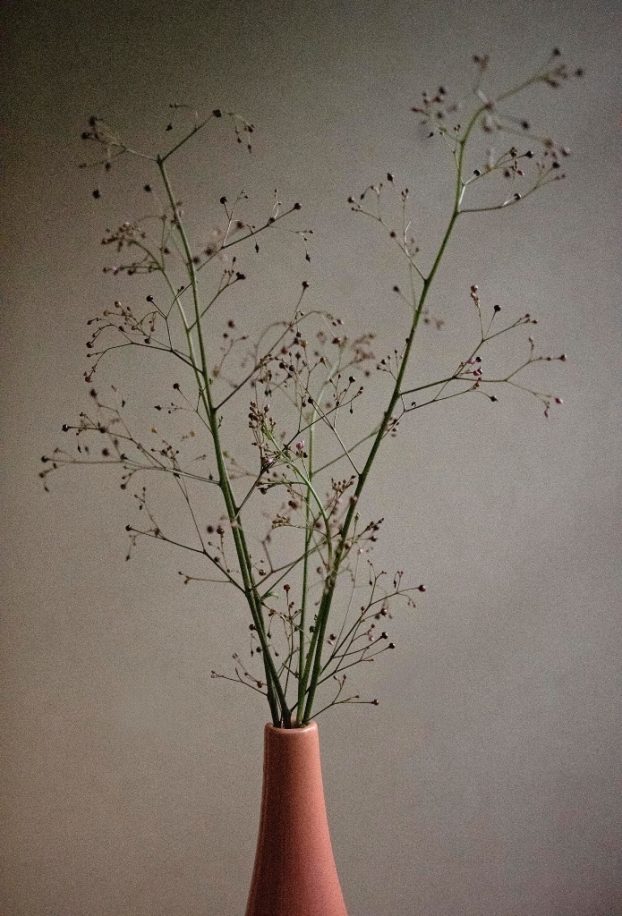
That was one of the most enjoyable and relaxing experiences I’ve ever had on a Zoom interview! I had to actually turn off the recording because David and I were having trouble “ending” the conversation – it was too much fun.
Subscribe to Right Field Farm’s newsletter here.
Follow Right Field Farm on Instagram
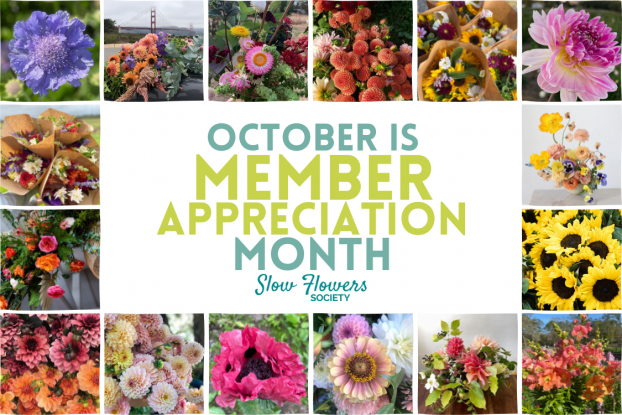
We have devoted the entire month of October to Member Appreciation Month, with something special scheduled every day to highlight our members, leaders and visionaries of the Slow Flowers Movement. In addition to joining me here on the podcast, I’ve hosted Instagram Live conversations and shared stories and other resources like our new Slow Flowers Video, as well as across our other many channels, including at Slow Flowers Journal and in our weekly email blasts.
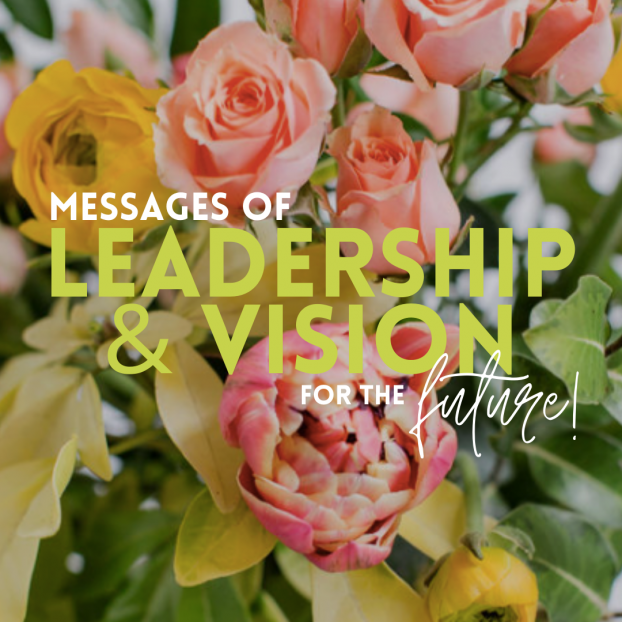
Last weekend, I took a moment to write “Future Flowers,” an essay that reflects on what our members Have achieved and accomplished since we launched Slow Flowers in 2013 (and PS, that’s year this Podcast began, too!). Here’s an excerpt of what I wrote:
Even though this question: “What does Slow Flowers mean, anyway?” is still asked, it’s being asked less often. With 98 million social media impressions for the hashtag #slowflowers in the past year alone, there is no denying the term is used around the globe. It is synonymous with the goals and practices outlined in our manifesto.
As we approach 2022, my message to each of you is to dig deep into your own values and belief systems and ask yourself: What do I want to achieve through my floral enterprise? The idea of doing “better than” and doing good with
Read the full essay at Slow Flowers Journal
our flowers is more important than ever. We’re seeing more of our members use their flowers as a vehicle for causes they support; using flowers to symbolize hope and humanity, while also building a business that offers a sustainable
livelihood to them, their families and their employees while at the same time improving farmland and communities alike. I invite you to share your message of hope for the future in the comment section of our show notes or at @slowflowerssociety on Instagram. I am so grateful for the many of you who have taken the time and lent your voice to the conversation — and I congratulate you on taking a leadership role with your sustainable actions and beliefs.
Thank you to our sponsors!
This show is brought to you by Slowflowers.com, the free, online directory to more than 880 florists, shops, and studios who design with local, seasonal and sustainable flowers and to the farms that grow those blooms. It’s the conscious choice for buying and sending flowers.
Thank you to our lead sponsor for 2021, Farmgirl Flowers. Farmgirl Flowers delivers iconic burlap-wrapped bouquets and lush, abundant arrangements to customers across the U.S., supporting more than 20 U.S. flower farms by purchasing more than $9 million dollars of U.S.-grown fresh and seasonal flowers and foliage annually. Discover more at farmgirlflowers.com.


Thank you to Rooted Farmers, which works exclusively with local growers to put the highest-quality specialty cut flowers in floral customers’ hands. When you partner with Rooted Farmers, you are investing in your community, and you can expect a commitment to excellence in return. Learn more at RootedFarmers.com.
Thank you to Longfield Gardens, which provides home gardeners with high quality flower bulbs and perennials. Their online store offers plants for every region and every season, from tulips and daffodils to dahlias, caladiums and amaryllis. Check out the full catalog at Longfield Gardens at longfield-gardens.com.
Thank you to Johnny’s Selected Seeds, an employee-owned company that provides our industry the best flower, herb and vegetable seeds — supplied to farms large and small and even for backyard cutting gardens like mine. Find the full catalog of flower seeds and bulbs at johnnysseeds.com.
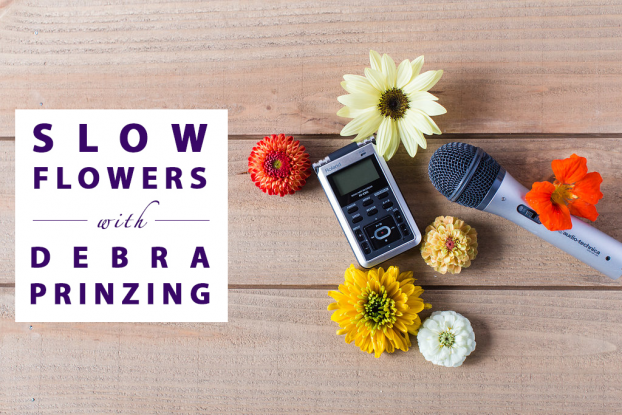
Thanks so much for joining us today! The Slow Flowers Podcast has been downloaded more than 778,000 times by listeners like you. Thank you for listening, commenting and sharing – it means so much. As our movement gains more supporters and more passionate participants who believe in the importance of our domestic cut flower industry, the momentum is contagious. I know you feel it, too.
Slow Flowers Society is a member-supported organization focused on advocacy, outreach and education around the importance of local, seasonal and sustainable flower growing and floristry. You can find the donate button in the column to the right at debraprinzing.com
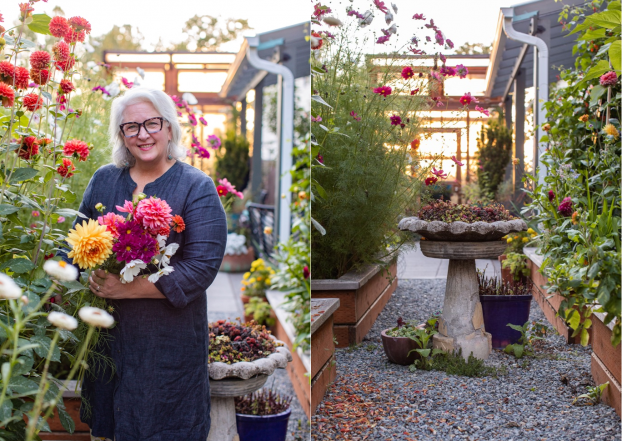
I’m Debra Prinzing, host and producer of the Slow Flowers Show & Podcast. Next week, you’re invited to join me in putting more Slow Flowers on the table, one stem, one vase at a time. The content and opinions expressed here are either mine alone or those of my guests alone, independent of any podcast sponsor or other person, company or organization.
The Slow Flowers Podcast is engineered and edited by Andrew Brenlan. You can learn more about Andrew’s work at soundbodymovement.com.
Music Credits:
Lissa; Turning on the Lights; Gaena
by Blue Dot Sessions
http://www.sessions.blue
Lovely
by Tryad
http://tryad.bandcamp.com/album/instrumentals
http://creativecommons.org/licenses/by-sa/3.0/
In The Field
audionautix.com









